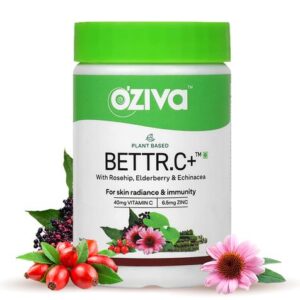Vitamin E comes from a variety of natural foods. It’s easy for a person to get the recommended daily amounts by just eating a variety of healthy foods that are rich in vitamin E. Some plant-based sources of vitamin E include certain oils, spinach, broccoli, almonds and tomatoes.
If you’re deciding on what to include in your daily diet to give your body the Vitamin E it requires, we are here to guide you!
List of Top Plant-Based Sources of Vitamin E
#1. Almonds
Almonds are the powerhouse of vitamin E. Did you know? Just 30g (about a handful) of almonds contains 7.7mg of alpha-tocopherol vitamin E, which is 77% of the Recommended Dietary Allowance.
#2. Peanuts or Peanut Butter
How amazing is it that we can eat Peanut Butter all day long! I mean of course, we don’t mean ‘finish a jar a day’! But it is packed with 3mg of this powerful antioxidant (vitamin-E, duh), 49mg of bone-building magnesium, 208mg of muscle-friendly potassium, and 0.17mg of immunity-boosting vitamin B6 making it a nutritious snack. Also, 4.93mg of vitamin E is present in 100g serving of dry-roasted peanuts.
#3. Spinach
From salads to soup – our top picked green veggie Spinach marks its place in the list to be of the best sources for Vitamin E as just a half-cup of raw spinach can provide you 16 % of vitamin E.
#4. Mangoes
These low-calorie natural delicacies that fill our mouth with sweetness contain 67% of your daily vitamin C and more than 8% of your daily copper, folate, vitamin B6, vitamin A, and vitamin E making it a great food for the skin.
#5. Red Bell Pepper (Red Capsicum)
Add a little spice to your life! Include these red beauties in your daily diet that offer up to 10% of your daily Vitamin-E requirement and contain nine times more beta-carotene compared to other peppers.
#6. Avocado
Avocados are stone fruit with a creamy taste that grows in sunny environments. Their possible health advantages include improving metabolism, reducing the risk of depression, and guarding against cancer. Avocado is a great source of many nutrients, like potassium, vitamins C, Vitamin K, etc. Half an avocado includes up to 20% of Vitamin E.
#7. Tomatoes
The tomato is consumed in several forms, fresh or cooked, in various recipes, seasonings, mixtures, and beverages. The fourth portion cup of tomato paste has 2.8 milligrams of vitamin E, 664 milligrams of potassium, 34 milligrams of lycopene, and 54 calories — a true superfood.
#8. Broccoli
Broccoli is an edible green plant from the cabbage group whose extensive flowering top, stalk, and little associated leaves are consumed as a vegetable. Broccoli is also a very good source of Vitamin E. It contains 1.5mg of Vitamin E per 100g.
#9. Sunflower Seeds
Usually, seeds are excellent sources of vitamin E, but sunflower seeds are particular powerhouses. One ounce combined with a smoothie, grain, or salad has 7.4 milligrams of vitamin E which is half of your day’s essentials. Sunflower oil has approximately one-third of vitamin E, but it is still a great source of vitamin.
#10. OZiva Plant-Based Vitamin E
OZiva plant-based Vitamin-E is packed with 100% natural Vitamin-E sourced from non-GMO Sunflower Oil that absorbs in your skin 2X faster than synthetic Vitamin E to keep your skin well-hydrated, nourished and glowing! Now available at Rs.799/- only.
Key Takeaway
Vitamin E is an antioxidant that defends the body from the harm caused by free radicals, which are volatile molecules that are produced by the body generally or when revealed to lethal substances such as tobacco smoke or radiation. Vitamin E is not just one source of vitamin but groups of fat-soluble compounds that help heal, repair, and rejuvenate the body. Also, Vitamin E is a good source that helps for the growth of hair, skin, fingernails, and internal organs.
Stay happy and stay fit!
Last modified: February 9, 2021




